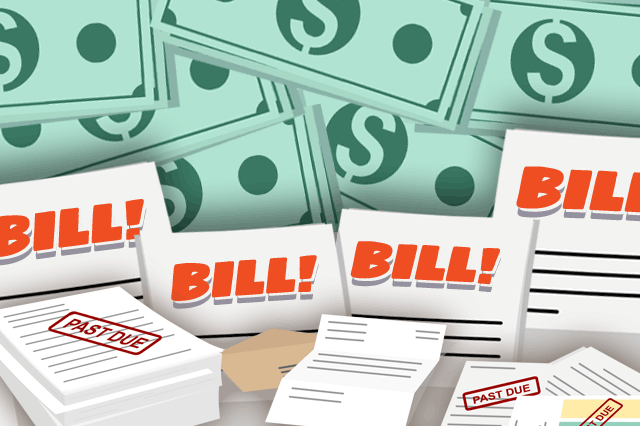FHA Loan Applications and Debt Ratios

Credit qualifications such as FICO scores, credit history, and employment are definitely factors in the home loan approval process, but the amount of debt you carry is equally important. The rules for debt-to-income (DTI) ratios and loan approval are found in the FHA loan handbook, HUD 4000.1.
The rules specifically state that your lender is required to "determine the Borrower’s monthly liabilities by reviewing all debts listed on the credit report, Uniform Residential Loan Application (URLA), and required documentation."
Some borrowers worry about certain forms of debt and how they might affect the DTI; FHA loan rules state that some debt is not included:
"Closed-end debts do not have to be included if they will be paid off within 10 months and the cumulative payments of all such debts are less than or equal to 5 percent of the Borrower’s gross monthly income. The Borrower may not pay down the balance in order to meet the 10-month requirement."
Borrowers who are authorized account users on someone else's credit card (or other forms of indebtedness) should take note of rules in HUD 4000.1 that address that specific situation:
"Accounts for which the Borrower is an authorized user must be included in a Borrower’s DTI (debt to income) ratio unless the Mortgagee can document that the primary account holder has made all required payments on the account for the previous 12 months. If less than three payments have been required on the account in the previous 12 months, the payment amount must be included in the Borrower’s DTI."
That is important to remember if you find yourself in a situation where you are asked, prior to your loan application, to be a co-borrower, shared account user, etc. Evaluate how that may or may not affect your DTI and loan approval chances.
Along these lines, FHA loan rules have provisions for other circumstances:
"Loans secured against deposited funds, where repayment may be obtained through extinguishing the asset and these funds are not included in calculating the Borrower’s assets, do not require consideration of repayment for qualifying purposes."
In some cases, a borrower wants to pay off a debt before the home loan closes-a good idea if a borrower is worried about how the debt might affect loan approval. In these instances, FHA loan rules require the source of payoff funds must be verified and documented to insure previous debt calculations are still accurate.
"The Mortgagee must document that the funds used to pay off debts prior to closing came from an acceptable source, and the Borrower did not incur new debts that were not included in the DTI ratio."
Talk to your loan officer if you aren’t sure how certain types of debt or the debt you are thinking of paying off before applying might affect your chances for FHA home loan approval.
------------------------------
RELATED VIDEOS:
Get Your Questions Ready for Your Loan Officer
The Last Part of the Transaction Is the Mortgage Closing
Understand the Reasons for Private Mortgage Insurance

Do you know what's on your credit report?
Learn what your score means.







